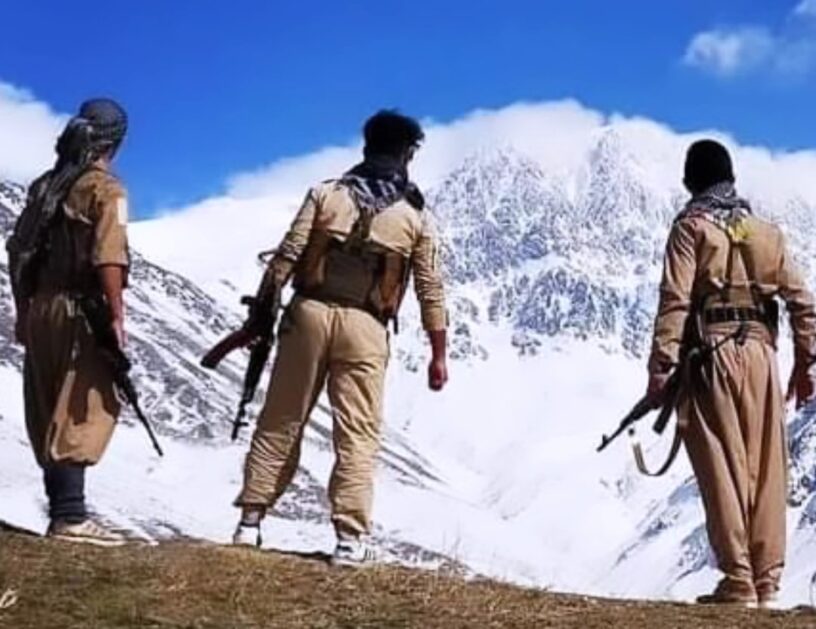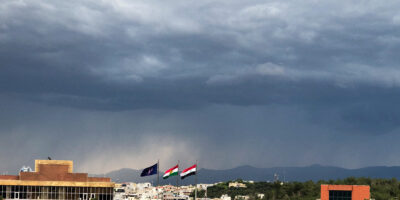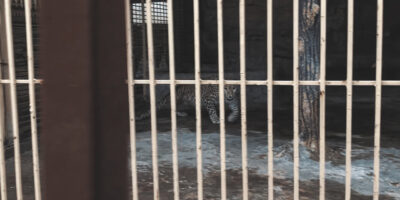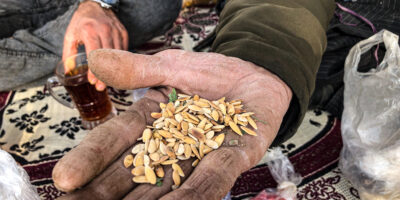A senior commander of Iran’s Islamic Revolutionary Guard Corps (IRGC) claimed that Israel is receiving help from insurgent groups to carry out low-level assassinations and raids in Iran’s border regions with the goal of destabilising the country. Tehran is carrying out counter-insurgency operations against these groups in Pakistan and Iraq while at the same time reiterating its commitment to strike back at Tel Aviv for the killing of Hamas chief Ismail Haniyeh.
“The movements in the border areas are a sign of the enemy’s planning and supporting opposition groups based in the border regions,” Mohammad Pakpour, commander of IRGC ground forces, said on Sunday. “Based on our investigations, the Zionist regime is behind these sabotage attacks in the border areas and the terrorist attacks against the outposts.”
Pakpour was referring to the southeastern region of Baluchestan and the Kurdish region in the west and northwest of the country where Baluchi and Kurdish opposition groups are active.
Tehran has always viewed the Kurdish and Baluchi minority ethnic groups through a security prism and as a vehicle for Israel and other enemies to carry out acts of sabotage inside the country. The two communities played a critical role during the Jin Jiyan Azadi (Woman Life Freedom) protest movement, turning some cities and towns into war zones.
Now, with the Middle East on the brink of a possible major war, Tehran sees these border regions as a vulnerability and wants to seal them to avoid any unrest inside its borders and a repeat of the September 2022 nationwide protests.
The Baluchi region
On August 23, three men armed with AK47s waited patiently in the southeastern town of Khash in broad daylight. When an armed man carrying his shopping approached them, the three men opened fire, killing the man who was the town’s police chief, accused of serious human rights violations against the Baluchi people.
Video of the assassination was published on the Telegram channel of Jaish al-Adl, a Baluchi Sunni armed group. The group has been behind a series of assassinations in the region and a major attack on a police station in December that left 11 security personnel dead.
The attack on the police station coincided with Israel intensifying its strikes on the IRGC in Syria, killing a number of senior Iranian commanders.
Iran has repeatedly accused Kurdish and Baluchi groups of being in the pay of Israel, albeit without providing much tangible evidence, and has fought back, carrying out its own assassinations of members of these opposition groups inside Iraqi Kurdistan and Pakistan, executing a number of individuals it accused of collaborating with Israel’s intelligence agency, Mossad, and carrying out missile strikes against these groups. The Kurdish and Baluchi groups deny any connection with Israel.
The Kurdistan region
In Iraqi Kurdistan, where a number of Kurdish opposition groups are based, Tehran has now moved on to the next phase of degrading them as its security agreement with Baghdad is implemented. The deal was signed in 2023 in the aftermath of protests the year before.
Three branches of the leftist party Komala have recently moved a number of their fighters to a new camp in Surdash, designated by Baghdad as part of the security pact and preparing the ground for moving the rest of the groups from their current camp in Zergwez on the outskirts of Sulaimani city.
IRGC commander Pakpour said on Sunday that all the opposition groups in Iraqi Kurdistan have been disarmed ahead of the first foreign visit by new Iranian President Masoud Pezeshkian to Iraq and its Kurdistan Region on Wednesday. However, this appears not to be the case, except for Komala.
There is a real fear amongst the opposition groups that operatives from the IRGC intelligence and the ministry of intelligence may try to abduct notable individuals from these parties and take them back to Iran, as Tehran has done in the past with high profile individuals such as the journalist Ruhollah Zam.
As part of its security agreement with Baghdad, Tehran has requested a list of individuals from these opposition groups who were allegedly involved in the killing of regime collaborators inside Iran.
In the years preceding the September 2022 protest movement, Kurdish opposition groups based in Iraqi Kurdistan often deployed small units of their fighters across the border into western Iran, where they gunned down people accused of working with Iranian forces.
The Islamic Republic responded by carrying out a number of assassinations in Iraqi Kurdistan, similar to what the Iranian intelligence ministry and IRGC intelligence have done in recent months in Pakistan. Iranian agents were involved in three high profile assassinations of Kurdish opposition party members in Iraqi Kurdistan in 2023.
Another worrying aspect for the Kurdish opposition groups is that in these new camps, without arms, they would be sitting ducks for IRGC Quds Force operatives and Iraqi militia backed by Iran. This has happened before.
The People’s Mojahedin Organization of Iran (MKO or MEK), which were based in Iraq since the 1980s, were repeatedly attacked by IRGC Quds operatives and their Iraqi militia following the overthrow of the Saddam Hussein regime in 2003. The attacks continued until the MKO was eventually forced out of the country in 2016.
The IRGC in June 2023 released footage for the first time showing how their death squads entered the MKO camp in September 2013, gunning down dozens of civilians by shooting them in the head at point-blank range.
The ultimate objective for Tehran is to contain all of these Baluchi and Kurdish opposition groups in Pakistan and Iraqi Kurdistan no matter the cost in order to seal its borders and keep its restive ethnic areas in check inside the country. But this may not be as easy as it seems.




